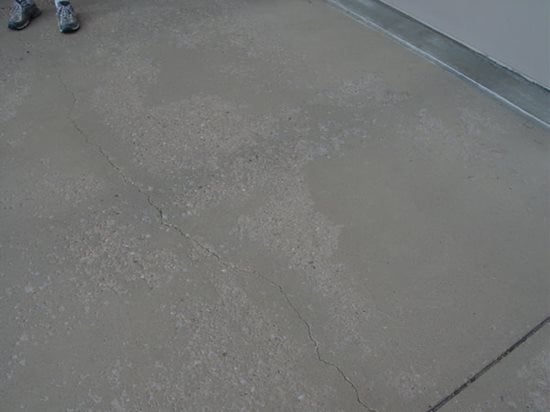 Find out what causes spalled concrete and learn the best advice on fixing the issue. Chris Sullivan; Updated June 24 2020.
Find out what causes spalled concrete and learn the best advice on fixing the issue. Chris Sullivan; Updated June 24 2020.
Spalling of concrete can cause frequent issue where a portion of the concrete surface peels away, chips or breaks away. Also called scaling, it’s caused by an uneven surface that is prone to being damaged.
Concrete that is spalled may be the result of some of the following causes
- Freeze-thaw cycles
- De-icing salts
- Poor finishing techniques
- Improper curing
- A bad concrete mix
In the event that your concrete has begun cracking there are a few remedies:
- Cover the spalled area using an appropriate color-matching compound
- Resurface your concrete with an overlay
- Replace the entire slab
HOW TO PREVENT CONCRETE SPALLING
Sealing is the most effective method to stop spalling due to moisture. For concrete that is brand new apply an impermeable waterproofing sealer 28 days after the placement of concrete and every couple of years thereafter.
The right mix of concrete can also aid in preventing spalling. Air entrainment is especially effective in resisting freeze-thaw cycles. If the concrete’s moisture freezes, the air cells alleviate internal pressure by creating tiny chambers to allow for expanding water when it cools.
FIXING A SPALLED DRIVEWAY
Spalling caused due to freezing and the thawing process and deicing chemicals
ugly pits in concrete driveway.
Question:
What is the cause of this failure on my concrete driveway? And what could I do to remedy it? The driveway is six years old and is 1,000 square feet in area however only some hundred square feet in the front of garage doorways are showing evidence of damage.
Answer:
This kind of surface failure is known as scaling or spalling, is more prevalent in colder climates, where freeze-thaw cycles as well as deicing chemicals are common. The freezing causes the water in the capillaries of concrete to expand which creates pressure. In time, the expanding pressure created by repeatedly freezing or thawing may cause the top layer to fall away that the concrete is left with, leaving pits and expose fine aggregate. Deicing chemicals can exacerbate the already stressed concrete by allowing even more water to enter the concrete, thereby increasing the extent and size of spalling failures once there is a freezing.
